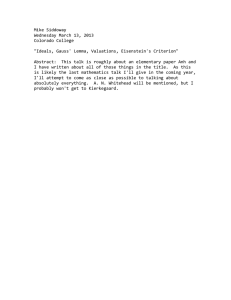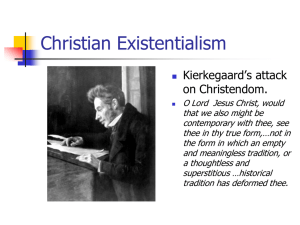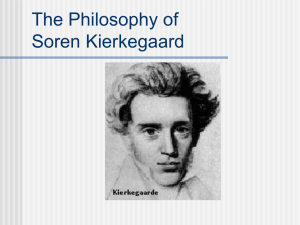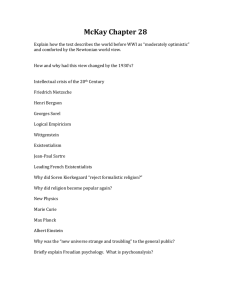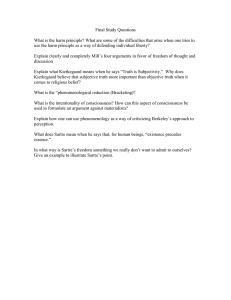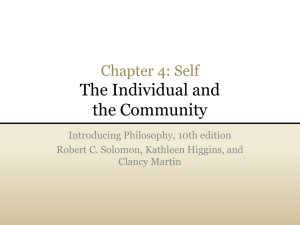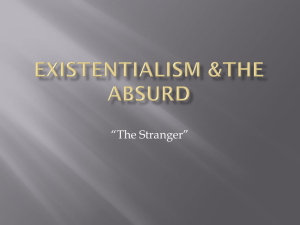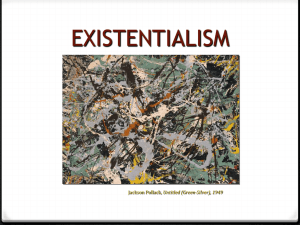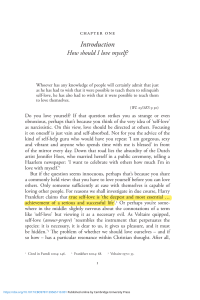Existentialism: Kierkegaard's Philosophy and Modern Relevance
advertisement
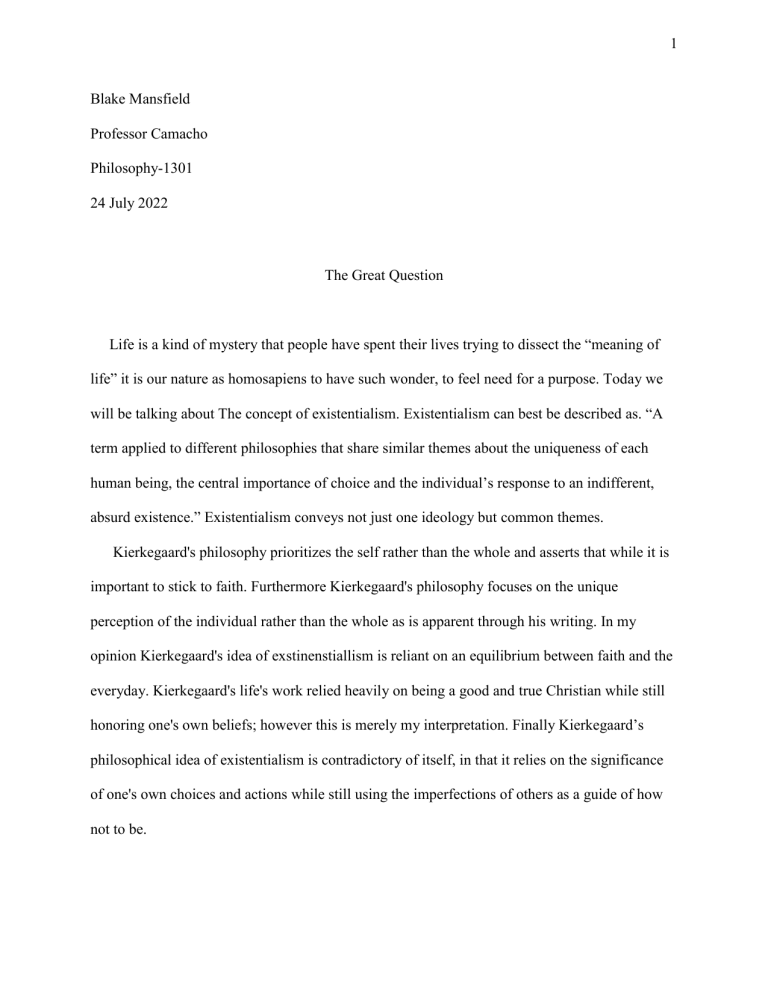
1 Blake Mansfield Professor Camacho Philosophy-1301 24 July 2022 The Great Question Life is a kind of mystery that people have spent their lives trying to dissect the “meaning of life” it is our nature as homosapiens to have such wonder, to feel need for a purpose. Today we will be talking about The concept of existentialism. Existentialism can best be described as. “A term applied to different philosophies that share similar themes about the uniqueness of each human being, the central importance of choice and the individual’s response to an indifferent, absurd existence.” Existentialism conveys not just one ideology but common themes. Kierkegaard's philosophy prioritizes the self rather than the whole and asserts that while it is important to stick to faith. Furthermore Kierkegaard's philosophy focuses on the unique perception of the individual rather than the whole as is apparent through his writing. In my opinion Kierkegaard's idea of exstinenstiallism is reliant on an equilibrium between faith and the everyday. Kierkegaard's life's work relied heavily on being a good and true Christian while still honoring one's own beliefs; however this is merely my interpretation. Finally Kierkegaard’s philosophical idea of existentialism is contradictory of itself, in that it relies on the significance of one's own choices and actions while still using the imperfections of others as a guide of how not to be. 2 I feel that Patrick Gardiners passage encompasses Kierkegaard’s ideals quite clearly detailing what he felt towards the world around him. Gardners passage illustrates a sense of the loss of self or of one’s identity which I feel if Kierkegaard were here today he would agree that this problem is still very prominent. Furthermore We live and work in mundane lives committed to certain duties which are unchanging like a Vogel im käfig or bird in a cage. We repeat the knowledge which we learn as if we have experienced it ourselves without gaining an actual unique human experience. Lastly, I feel the final line “people knew what they knew what they were supposed to say, but they no longer attached any real significance to the words they used.” Can be interpreted in a variety of ways however my interpretation was that in the come and go of life people lost their sense od self-identity and relied more so on traditional norms which after so much time were abandoned for fresh and new ways of thought or possibly the exact opposite. People may have been set in their ways conforming to the world about them, thinking as if like sheep following what is deemed as socially acceptable. Existentialism has never been more relevant than in the present we are all dreamers of a greater tomorrow which we forge for ourselves. I am not one who has many aquaintances and with good reason I feel that Kierkegaard’s ideals are resonant with my own. In the present day of we have become societal slaves working until we break like clocks that always headed to their final chime, each alike to the next. Humans need to feel purpose; it is “the essence” which i feel Kierkegaard described without a means we have no end. We grant significance to the events in our lives, while in the past humanity sought knowledge now that we have thousands of years of knowledge, people are ignorant of it and in fact worship human idols that spew toxicity rather than truth. So in this way I feel Kierkegaard’s ideals are relevant today more so thn they were in 3 his time. The sense of self is lost to the sense of the Whole which replaces one's image with those of others rather than the authenticity of the one. My thoughts on existentialism are quite different from those of Kierkegaard's; however I feel that there is also one great similarity. I feel that humans are driven by these primal feelings of needing purpose, needing faith and something to motivate one forward. Additionally I agree that humanity has become less focused on their own beliefs but instead follow the herd so to speak. Kierkegaard’s legacy will always be regarded with great significance for his revolutionary new age train of thought and for his amazing ideals. I feel that Kierkegaard is like me in a sense a scared child trying to find any kind of reason in a world which is devoid of it.
